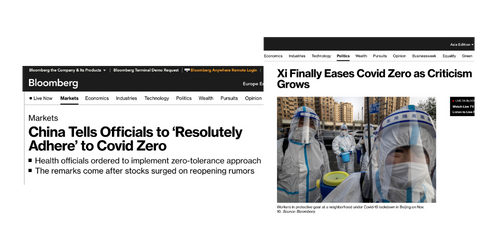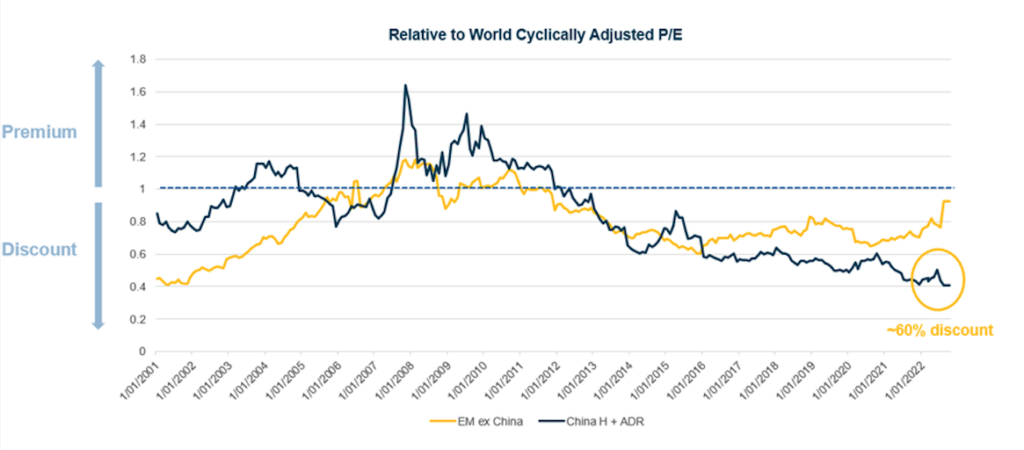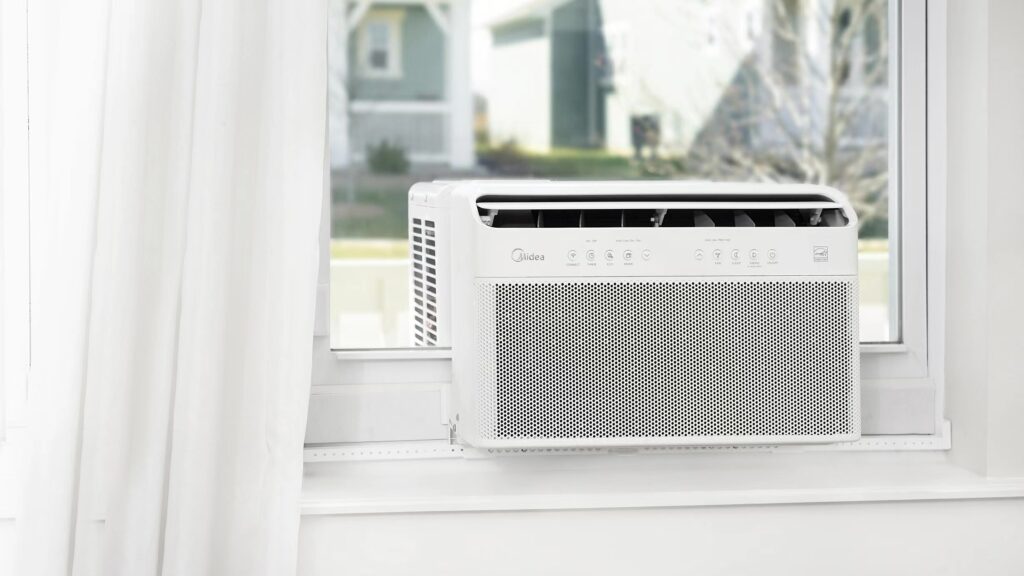Key points:
- Is the tide turning in China? Recent announcements by Chinese authorities around the property sector and COVID policy explained.
- As these developments unfold, valuations remain attractive at 11x earnings. The upside from reopening and more stimulus compensates for geopolitical risk.
- Midea, a leading manufacturer of air-conditioning units and white goods, is an example of a resilient Chinese business that will benefit from a stabilisation in the property market (a summary of the investment case is provided in this newsletter’s stock in focus).
China has been one of the most discussed topics during our meetings with clients and investors over the past few years. And it’s easy to understand why.
The region has been one of the most hotly debated in global markets and exposure has been uncomfortable.
The economic slowdown persisted longer than we expected due to the Party’s COVID-zero policy, which compounded troubles in the property sector. And just last month President Xi’s consolidation of power (forming a Politburo consisting of supporters) roiled markets, we even saw certain high profile US institutional investors announce plans to cut exposure.
This was arguably a point of peak fear.
Chinese equities fell to 9x forward earnings. The market was not factoring in a top down resolve to exit COVID-zero, policy change (despite PBoC loosening) or the potential for more supportive policy.
But now, the tide could be turning.
China’s ruling Party’s stance has meaningfully shifted in the last week or so; support for property developers and home buyers is increasing, and policies around COVID-zero are relaxing.
We discuss each of these factors below.

Property sector policy pivot
The government-backed bond financing programme – where the government guarantees bonds raised by property developers – has been expanded in size and is accessible to more developers, debt that is maturing can be rolled for up to one year, caps placed on bank lending to the property sector are being removed, and property developers are allowed to access funds from presales.
This is in addition to the People’s Bank of China (PBoC) injecting capital directly into several state-owned banks for property and infrastructure lending i.e. the PBoC’s version of QE.
On our analysis, more than RMB1t has been injected into the property sector, which represents meaningful funding support relative to the debt maturities of the sector over the coming year. Increasing liquidity to the sector is positive for completions and reduces default risk – which is positive for consumer confidence. Time will tell whether these measures translate into transactions, though we note mortgage rates have been further reduced and banks have been instructed to increase property loans.
Even with this support we still expect primary sales to drop below trend demand of around 12m units p.a. to work off the excesses from the 14 – 15m p.a. units sold over the last five years.
The shift in COVID-zero
On top of this, China is relaxing its COVID-zero policies. While there has been a push to increase vaccinations, there has been a change in the rhetoric around the severity of the virus – which indicates a move towards living with COVID. There’s been a move away from city-wide lockdowns, PCR testing requirements are being reduced, and the definition of a close contact has been loosened. This is all the while case counts are at a very elevated level and rising.
As we’ve said previously, China isn’t going to have a “big bang” reopening like the developed world but will continue to ebb and flow along a path towards normalisation.
And as lockdowns continue to ease, rising money supply will be felt more broadly through the economy.
The PBoC has been loosening as the rest of the world is tightening. Money supply in China has been accelerating at the fastest pace in five years at 12% yoy and the credit impulse (the change in credit relative to the change in GDP) has recently turned positive.
Even after recent moves, China offshore (H shares and ADRs) is still priced at 11x forward earnings. On a cyclically adjusted PE basis this represents a c. 60% discount to the world – a 20 year low (figure 1). This is an attractive valuation given evidence that policy is shifting away from reform to economic health, even if geopolitical issues result in a structurally lower growth rate and a higher discount rate.
We’re holding the line on China.
China H and ADR listings are at a historically large discount

The battle between the superpowers
The frost between China and the US appears to be thawing at the G20, with positive conversations around trade and the US listings of Chinese companies. Nonetheless there’s no denying relations between the two global superpowers remains prickly which has implications for the risk/return profile of investing in China.
To balance this risk, we have been increasing our exposure to other emerging markets such as Indonesia, Mexico and Brazil to complement our exposure to China. These markets offer attractive growth rates and valuations with lower geopolitical risk. They are also beneficiaries of the evolving multipolar geopolitical landscape, and their currency and bond markets are showing a high degree of resilience due to much tighter long-term fiscal and monetary policy settings versus many Western equivalents.
Stock in focus | Midea Group (SHE: 000333)*

Midea Group is a leading manufacturer of air-conditioning units and white goods, which has been a market share taker in domestic and export markets due to cost control, more attractive pricing, and a strong distribution network. In a normalised environment we see the company growing revenue and earnings c. 10% p.a. from a replacement cycle which sees households upgrade to higher energy efficient products at higher price points, continued market share gains due to the company’s investment in distribution, and development of its international and B2B businesses. Weak housing starts and a soft economy has seen Midea’s valuation fall to 10x forward earnings – an attractive multiple for a resilient business that has consistently delivered an ROE of mid-20% over the last decade and will be a beneficiary of stabilisation in the property sector, improvement in consumer confidence, and arguably any stimulus directed at durable goods consumption.
*Illustrative only and not a recommendation to buy or sell any particular security
By the Antipodes Investment Team
